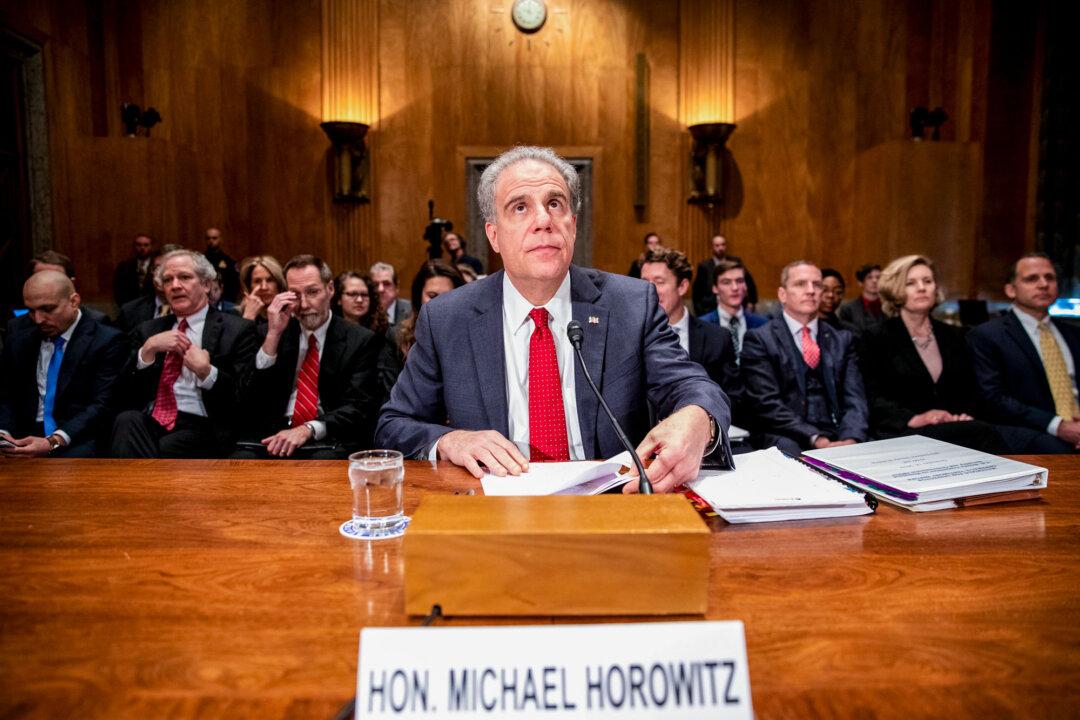The FBI had informants in Washington as the U.S. Capitol was breached on Jan. 6, 2021, according to an inspector general report released on Dec. 12.
Twenty-nine confidential human sources (CHSs) were in Washington on Jan. 6, U.S. Department of Justice Inspector General Michael Horowitz said in the report, which is the result of years of work.





